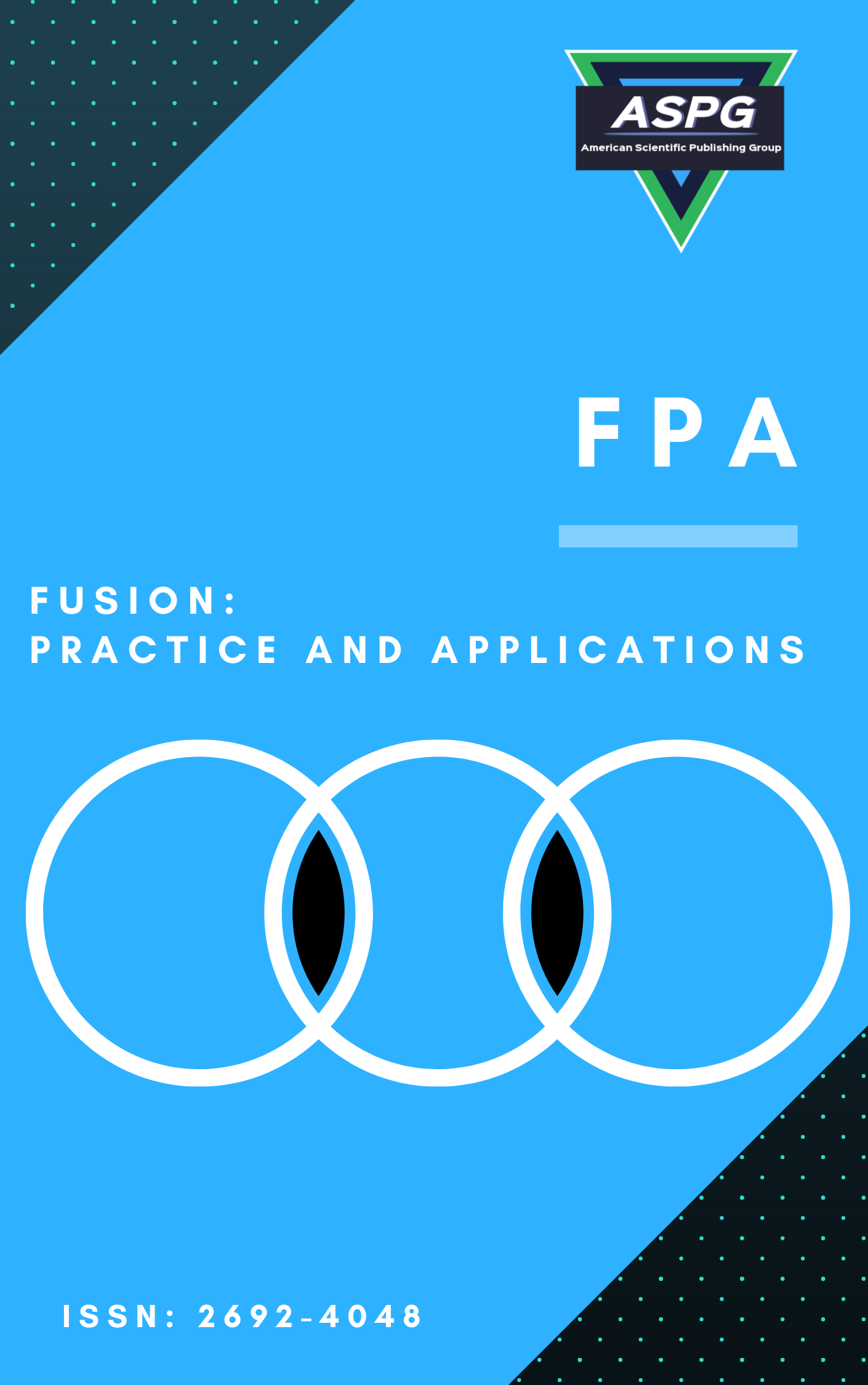

Volume 16 , Issue 1 , PP: 67-84, 2024 | Cite this article as | XML | Html | PDF
Silva A. Guido Javier 1 * , Juan G. Sailema Armijos 2 , Marco P. Villa Zura 3 , Maha Ibrahim 4
Doi: https://doi.org/10.54216/FPA.160106
This article explores the application of the linguistic 2-tuple computational model in decision-making processes, focusing on its efficiency in managing ambiguous and imprecise linguistic information, which is vital in complex decision-making environments. The main objective is to demonstrate the use of the Weighted Power Mean (WPM) operator for hierarchical aggregation, highlighting its adaptability in reflecting the priority structures of specific problems and preserving the integrity of expert opinions. The model enhances user interaction by minimizing the need for complex numerical conversions, facilitating more intuitive decision-making. The study introduces the methodology of the linguistic 2-tuples, emphasizing their practical application in various decision-making contexts through detailed case studies. It elaborates on the hierarchical aggregation model, discussing the flexibility and potential of the WPM operator to adjust the influence of individual criteria based on their importance. The article also examines potential improvements in aggregation operators to increase their effectiveness and applicability across different scenarios. This comprehensive analysis not only underscores the capabilities of linguistic computational models in modern decision-making environments but also proposes future directions for advancing these techniques to handle increasingly complex information landscapes.
Linguistic 2-tuples , Decision-making , Hierarchical aggregation , Weighted Power Mean (WPM) , Computational models.
[1] Malhotra, T., & Gupta, A. (2023). A systematic review of developments in the 2-tuple linguistic model and its applications in decision analysis. Soft Computing, 27(4), 1871-1905.Cordón, L.G.P., Modelos de recomendación con falta de información. Aplicaciones al sector turístico. 2008, Universidad de Jaén.
[2] Leyva Vazquez, M. Y., Quiroz Martinez, M. A., Diaz Sanchez, J. H., & Aguilera Balseca, J. L. (2021). Decision model for qos in networking based on hierarchical aggregation of information. In Advances in Artificial Intelligence, Software and Systems Engineering: Proceedings of the AHFE 2020 Virtual Conferences on Software and Systems Engineering, and Artificial Intelligence and Social Computing, July 16-20, 2020, USA (pp. 361-368). Springer International Publishing.
[3] Castro Arias, S. T., Quiroz Martinez, M. A., Leyva Vazquez, M. Y., & Flores Ortiz, A. C. (2021, June). Architectural Design for the Implementation of Learning Analytics: Case Study at Salesian Polytechnic University. In International Conference on Applied Human Factors and Ergonomics (pp. 260-268). Cham: Springer International Publishing.
[4] Teruel, K. P., Vázquez, M. Y. L., & Sentí, V. E. (2014). Consensus process in mental models and its application to agile software development in bioinformatics. Revista Cubana de Información en Ciencias de la Salud (ACIMED), 25(3), 317-331.
[5] Dutta, B., D. Guha, and R. Mesiar, A model based on linguistic 2-tuples for dealing with heterogeneous relationship among attributes in multi-expert decision making. Fuzzy Systems, IEEE Transactions on, 2015. 23(5): p. 1817-1831.
[6] Herrera, F. and L. Martínez, A 2-tuple fuzzy linguistic representation model for computing with words. Fuzzy Systems, IEEE Transactions on, 2000. 8(6): p. 746-752.
[7] Torra, V. and Y. Narukawa, Modeling decisions: information fusion and aggregation operators. 2007: Springer.
[8] Beliakov, G., A. Pradera, and T. Calvo, Aggregation functions: a guide for practitioners. 2007: Springer.
[9] Yager, R.R., On ordered weighted averaging aggregation operators in multicriteria decisionmaking. Systems, Man and Cybernetics, IEEE Transactions on, 1988. 18(1): p. 183-190.
[10] Chigane, K., & Ouassaid, M. (2024). Experimental power control of a single-phase DC/AC converter using fuzzy integral sliding mode approach for photovoltaic systems. International Journal of Dynamics and Control, 12(2), 494-513.
[11] Dujmović, J.J., Continuous preference logic for system evaluation. Fuzzy Systems, IEEE Transactions on, 2007. 15(6): p. 1082-1099.
[12] Dujmović, J.J. and H. Nagashima, LSP method and its use for evaluation of Java IDEs. International Journal of Approximate Reasoning, 2006. 41(1): p. 3-22.
[13] Saaty, T.L., What is the analytic hierarchy process?, in Mathematical models for decision support. 1988, Springer. p. 109-121.
[14] Islam, M. R., Aziz, M. T., Alauddin, M., Kader, Z., & Islam, M. R. (2024). Site suitability assessment for solar power plants in Bangladesh: A GIS-based analytical hierarchy process (AHP) and multi-criteria decision analysis (MCDA) approach. Renewable Energy, 220, 119595.
[15] Al-Subhi, S. H. S., Mahdi, G. S. S., Alava, M. V., Pérez, M. P. Y. P., & Vázquez, M. L. (2017). Linguistic weighted power means and its application for decision-making. International Journal of Innovation and Applied Studies, 22(1), 38-43.
[16] Long, G., Hu, Y., Liu, G., Rui, Z., & Zhang, W. (2024, February). Research on Weight Determination Method of Cable Damage Index Based on Game Theory. In 2023 5th International Conference on Civil Architecture and Urban Engineering (ICCAUE 2023) (pp. 263-274). Atlantis Press.
[17] Castro, J., Laranjeiro, N., & Vieira, M. (2023, July). Exploring Logic Scoring of Preference for DoS Attack Detection in Microservice Applications. In 2023 IEEE International Conference on Web Services (ICWS) (pp. 573-584). IEEE.
Leyva Vazquez, M. Y., Quiroz Martinez, M. A., Diaz Sanchez, J. H., & Aguilera Balseca, J. L. (2021). Decision model for qos in networking based on hierarchical aggregation of information. In Advances in Artificial Intelligence, Software and Systems Engineering: Proceedings of the AHFE 2020 Virtual Conferences on Software and Systems Engineering, and Artificial Intelligence and Social Computing, July 16-20, 2020, USA (pp. 361-368). Springer International Publishing